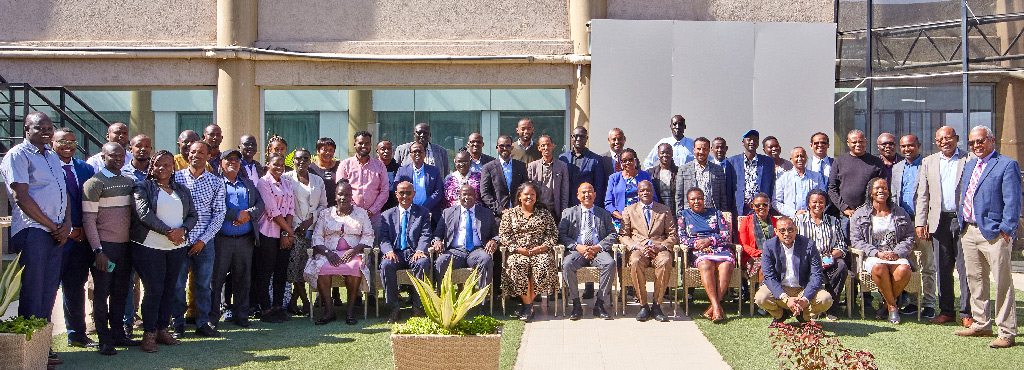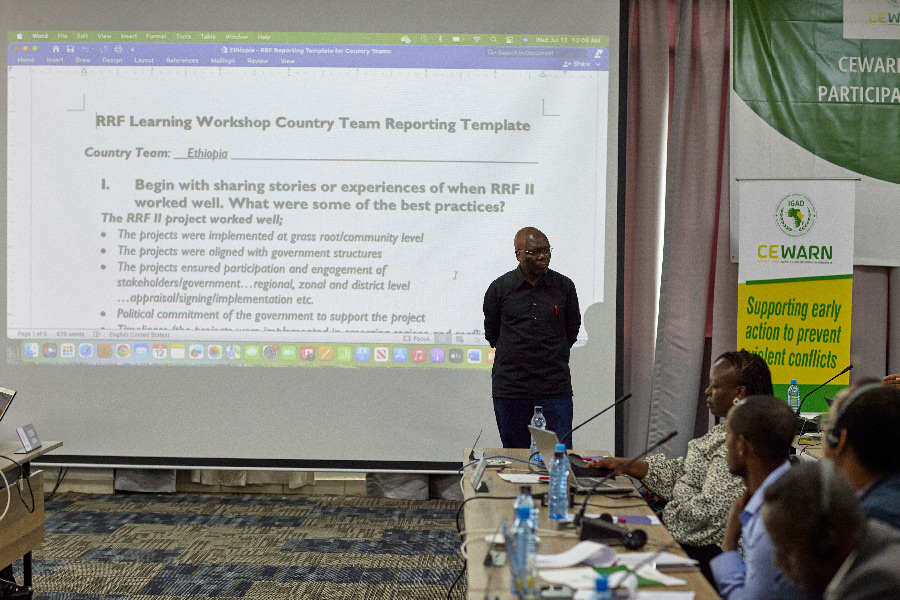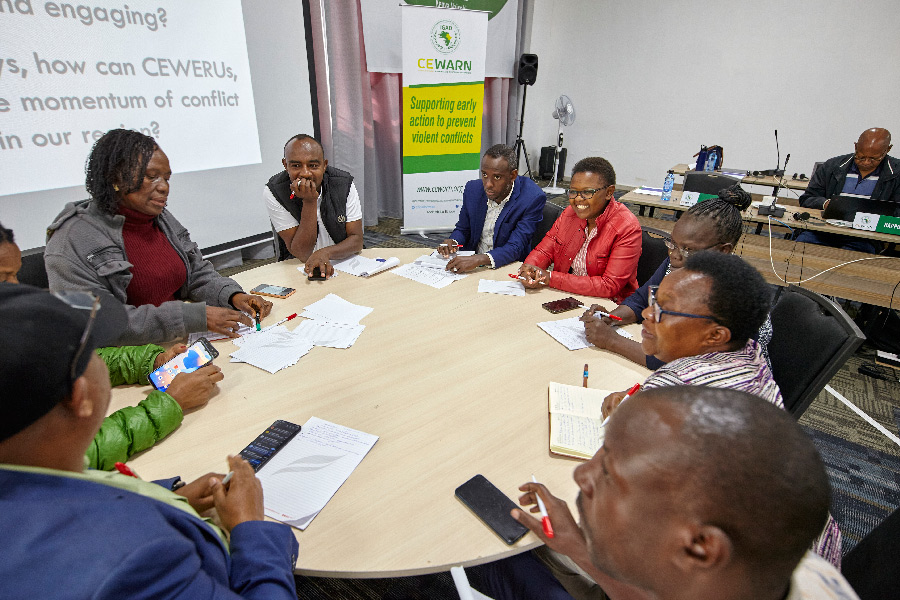CEWARN hosts a learning forum on community-based conflict mitigation interventions

CEWARN held a learning forum to appraise and draw lessons from Phase II of the Rapid Response Fund (RRF) which supports conflict mitigation projects across IGAD member states from 11-13 July in Nairobi. The forum drew together national Conflict Early Warning and Response Units (CEWERUs), local implementation agencies and their financial administrative units.
A total of 40 projects that are a mix of emergency and regular projects worth about one million Euro have been completed in Djibouti, Ethiopia, Kenya, Somalia, South Sudan, and Uganda. The European Union is a principal partner of CEWARN on the Rapid Response Fund.

The meeting was officiated by CEWARN Director Mr. Camlus Omogo; IGAD’s Peace and Security Division Director Hon. Siraj Fegessa; Head of Nat’ Conflict Early Warning and Response Unit (CEWERU) of Kenya Mr. Jacob N. Narengo as well as Head of Policy and Cooperation at the European Union Mission to the African Union Mr. Thomas Huyghebaert.
The Rapid Response Fund was set up in 2009 to support diverse type actions including urgent interventions to de-scalate persistent inter-communal conflicts and provide critical capacity building support to national structures. The RRF has been credited with providing direct support to local communities impacted by conflict. It has also contributed to fostering collaboration between governments and community-based organizations that command contextual understanding of crises and amplify local voices.

The European Union’s support to the RRF is part of the IGAD Promoting Peace and Stability in the Horn of Africa Region (IPPSHAR), a collaborative funding arrangement between the EU and IGAD for the period between 2018 – 2023 to support various IGAD peace and security programmes.The European Union’s support to the RRF is part of 28million Euro funding arrangements through IPPSHAR.
The forum utilized methods to undertake an appreciative inquiry of Rapid Response Fund’s phase II interventions in order to reflect on successes, challenges and lessons from local conflict mitigation projects implemented via RRF in IGAD Member States.
A number of recommendations were drawn on enhancing efficacy and sustainability of community-based peace initiatives supported by the fund.
